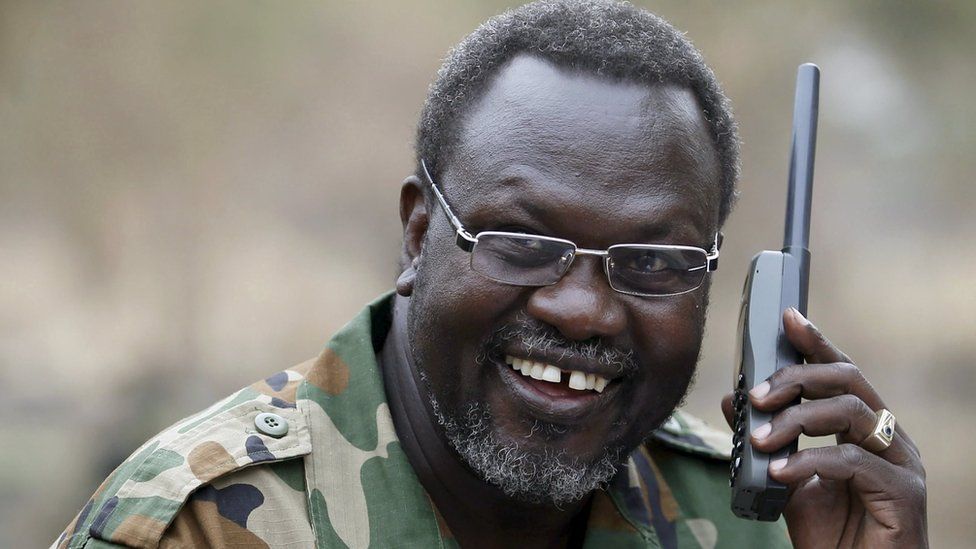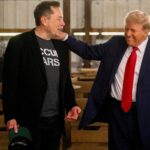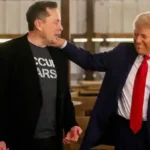Twelve billion US dollars, that was how much our son Elon Musk burnt within four minutes last week prospecting for greater glory above our heads. Musk was pursuing his dream of someday sending people on voyage to the galaxies beyond earth. With pregnant expectations, Musk watched his multi-billion dollar spacecraft disengage from its launching pad in Texas and within four minutes, it went up in flames its ashes scattered across the ocean. It was another dream burst for mankind.
By the time the flames had dissipated, Musk and ecstatic scientists congratulated themselves and probably sauntered to their favourite watering holes to drown their misfortune.
Scientists explained how difficult it was for a craft with 33 engines firing simultaneously to lift up without incident. They praised Musk for the effort. You wouldn’t blame them. Like me, most of them would slip into depression if they lost $100 of their own money.
Musk, who was born in Pretoria, South Africa, is the CEO of Spacex, the group behind the launch. He has already written his name in gold in the annals of space exploration and has his fingers in other pies. He successfully launched astronauts from NASA into orbit and pulled people to the edge of space with his Endeavor space capsule. Tickets were estimated between $250,000 and half a million dollars per head.
$2.4bn oil revenue ‘scam’: CNPP demands independent probe panel
Sudan: Diaspora group urges FG to evacuate Nigerians
Musk is equally the CEO of Tesla, the group that hopes to send all gasoline vehicles to the museum of antiquity and turn the House of Saud and its OPEC cartel members into beggars very soon.
In Africa, the supplication of every prayer warrior is to someday sit behind the wheel of a car. Musk is not directly working for the realisation of that dream yet. However, if this big dream of eradicating pollutants from Western highways materialises, Africans might unwittingly benefit. As it stands, from used sponges to bicycles, obroni wawu or second-hand clothes to refrigerators, air-conditioners to cars, every reject of the West ends up being born again somewhere in Africa that has no capacity to recycle them.
For now, the legal owners of this planet are not compelling Africa to set a deadline for the eradication of gasoline cars. In their benevolence, they are asking their co-pollutants to help Africa mitigate the disaster that their obsolete technology unleashes on the environment. Fed on a diet of religious hocus-pocus, the Africans believe that floods, fires and heat waves are a punishment for their sins and embark on prayers and fasting. Scientists think otherwise.
It wouldn’t make much difference if the West decides to sink cash into its climate mitigation efforts in Africa. History shows that 60 per cent of such cash usually ends in the pockets of donor-hired consultants who sit in ozone-depleting air-conditioned offices, fly across continents and are chauffeured in gas-guzzling automobiles writing papers on how to help us live and breathe better. The remaining cash usually ends up in the pockets of local politicians who eventually launder them back to the donor nations validating their upgraded status and creating nests for their families.
For Brother Musk, space scientists and astronauts are praying that he would make a greater success of his space projects than he has made the social media group, Twitter, which he bought for $44 billion. With it, he promised to create a new social media information revolution. He pulled techies from hibernation into beautifully furnished offices where they earned heavy salaries for doing nothing. He later sacked them and has been running the company like a magic rabbit after his plans to levy personal users $8 and corporate heads $1000 per month took off like the space capsule.
Musk is not losing sleep over these. When you control multi-billion dollar fortune with a head full of ideas, a few burnt billions are like firecrackers, not enough to make you call your shrink or organise a pity party.
There are those who would ask Musk to do something about poverty, hunger and famine; three ailments afflicting 50 per cent of his family members in Africa and the ailment that signposts the continent elsewhere.
Musk is not like the rest of humanity. His eyes are not on the political pie. You won’t catch him dead twitting about Cyril Ramaphosa and it is not out of fear. It is a good thing. A sure way of losing everything is for African businessmen to jump face-first into the murky waters of politics. Many who did jump to their eternal damnation. Wise ones prefer to play with AGIP – any government in power.
As Christ would have put it, Africa will always have the poor in it, thanks to its visionless and selfish politicians. Majority of the inhabitants of the continent are sold to a different kind of pie in the sky. While Musk is looking for fortune above the galaxies, most Africans are looking for that promised life beyond it.
In the past two weeks, Kenyan police have been exhuming the unmarked graves of followers of Paul Makenzi, the psychotic leader of Good News International Church encouraging its members to fast to death just to meet Jesus. Many who are excluded from sharing the wealth of the earth in Kenya have subscribed to this strange doctrine and have taken the challenge. About 60 bodies have so far been exhumed by early in the week. The project is continuing while Makenzi himself remains alive and well in a police jail perhaps with access to nyama Choma. He is apparently not in a hurry to meet Jesus.
The gullibility of deprived Africans continues to make the continent the destination of choice for all sorts of proselytes including the bloody Islamic State, IS. They are likely to relocate their headquarters to Africa from the Levant.
Africa is toast. If it is not a religious skirmish, it is a war of attrition. While Musk was launching his capsule, the inheritors of the Omar el-Bashir empire in the Sudan were launching a different thing – war! Since letting South Sudan go with its own troubles, Sudan has disintegrated into a failed state, thanks to the army that hijacked what was described as the Sudanese Revolution, an extension of the infamous Arab-African Spring.
Abdel Fatah al-Burhan, a former Bashir ally staged a coup on the street mob establishing himself firmly on the seat of governance. As negotiations fail, he allied himself with another warlord, Mohammed Hamdan Dagalo, leader of the ex-Janjaweed militia now codenamed Rapid Support Forces.
Last week, after several peace and power-sharing deals went south, the two power mongers decided to turn the Sudanese capital, Khartoum and the State of Darfur into an active shooting range trapping residents, many of them foreigners.
Like all warlords, civilian life meant nothing to them, as hundreds became collateral damage in their war of attrition. Thousands were wounded as they ventured out for food or medicine. Nothing has been resolved, prompting people to wish that Musk had built an anti-tank and artillery capsule. He could have made a killing from countries now looking for ways to rescue their stranded citizens. Is it too late, brother Musk?

 Join Daily Trust WhatsApp Community For Quick Access To News and Happenings Around You.
Join Daily Trust WhatsApp Community For Quick Access To News and Happenings Around You.


